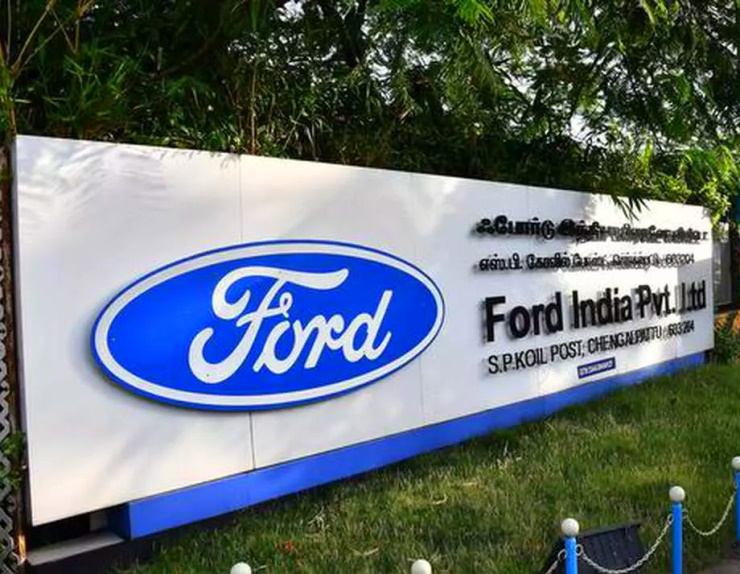Tesla-challenger VinFast wants Ford India’s Chennai factory for electric car production

[ad_1]
In a significant development for the Indian automotive landscape, Vinfast, the Vietnamese electric vehicle manufacturer, is contemplating the acquisition of Ford’s factory in Chennai as part of its global expansion strategy.
Vinfast: A Brief Overview

Vinfast Auto, founded in 2017 by Vietnamese conglomerate Vingroup, has become a prominent player in the electric vehicle market. This conglomerate, helmed by Vietnamese billionaire Pham Nhat Vuong, has diverse interests, spanning real estate, retail, technology, and now, automobiles.
Vinfast initially partnered with General Motors to produce and market Chevrolet vehicles in Vietnam. The company also collaborated with BMW to introduce uniquely styled models under the Vinfast brand. However, it took a significant shift towards electric vehicles (EVs) last year, positioning itself as an EV-only automaker.
Also read: 10 DC Design cars & how they look in the REAL world: Maruti Swift to Mahindra XUV500
The VF 8 electric SUV made its debut in the United States in 2021, followed by the VF 9, a three-row electric SUV. While initial sales figures were modest, Vinfast has ambitious plans for expansion. The company is constructing its second EV factory in the United States, where it intends to produce the all-new VF 6 and VF 7 SUVs for the North American market from 2025.
Beyond the United States, Vinfast is actively exploring opportunities in markets like India, Indonesia, and other ASEAN regions for the introduction of its EV lineup. Recently, Vinfast announced plans for its third plant in Indonesia, where it aims to assemble EVs starting in 2026.
Vinfast’s India Strategy
Vinfast has already initiated recruitment efforts in India, signaling its intent to establish a presence in the country. Although specific timelines remain uncertain, industry sources suggest that Vinfast might commence operations in India next year, initially through the Completely Built-Up (CBU) route and later transitioning to local assembly using Completely Knocked Down (CKD) kits. There have been sightings of the VF 8 being tested in India.
Unlike some other EV manufacturers eyeing the Indian market, Vinfast is not expected to encounter significant regulatory hurdles, making its entry smoother. However, the real challenge may revolve around product acceptance. In the United States, Vinfast’s EVs have received mixed reviews, with critiques focusing on fit and finish and software concerns.
Sources indicate that Vinfast is likely to adopt a top-down approach, initially importing CBU units and CKD kits before eventually venturing into local manufacturing in the coming years. The acquisition of Ford’s Chennai factory is reportedly under consideration, although discussions may still be in preliminary stages.
Ford’s Chennai Plant Acquisition

Cost-Effective Expansion Vinfast’s potential acquisition of Ford’s Chennai factory could prove advantageous for both parties. While Ford’s Chennai plant has a production capacity of 2.1 lakh units, Vinfast’s requirement may be comparatively lower, given the evolving landscape of EV volumes in India. Acquiring an existing facility could be a cost-effective alternative to establishing a greenfield facility.
Notably, Ford had previously sold its Sanand factory in Gujarat to Tata Motors for approximately Rs. 725 crore (less than USD 100 million). Similarly, the Maraimalai Nagar facility, which is over 25 years old, may also command a lower value due to worker settlements. Vinfast’s Ambitious Plans for India Vinfast’s explorations in India include the possibility of setting up a facility with a minimum capacity of 1 lakh units. Initially, the company may focus on the top-end of the market but eventually aims to participate actively in the core B segment, projecting significant future volumes.
Furthermore, India is envisioned not only as a domestic market but also as a base for exports to right-hand-drive markets in the latter half of this decade. If the sale of the Maraimalai Nagar facility materializes, it will mark Ford’s complete manufacturing exit from India. However, the door may remain open for a potential re-entry, albeit through the Completely Built-Up (CBU) and Completely Knocked Down (CKD) route. Vinfast’s potential entry into India could reshape the country’s EV landscape, offering consumers a new player with a strong global presence and a diverse EV lineup.
Also read: Upcoming 2022 Maruti Suzuki Vitara Brezza rendered
[ad_2]